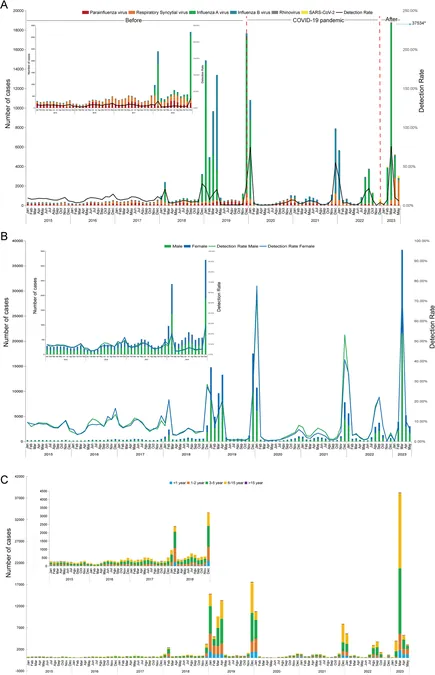
Is a New Mega-Earthquake Zone Forming Beneath the Atlantic?
2025-08-30
Author: Nur
The Potential Threat Beneath the Waves
A newly identified tectonic fault may be unfolding beneath the Atlantic Ocean, igniting fears of catastrophic earthquakes and tsunamis that could send shockwaves across the region. This alarming insight comes from a fresh study published in *Nature Geoscience*.
Portugal's Earthquake Mystery Unraveled
For centuries, scientists have been baffled by the seismic activity in Portugal, a nation situated far from the world's most notorious fault lines. One of the most devastating events was the magnitude 8.7 earthquake that struck Lisbon on November 1, 1755, claiming tens of thousands of lives and sending tsunami waves to the Caribbean. Then, in 1969, a magnitude 7.8 quake off the Portuguese coast resulted in 25 fatalities.
Professor João Duarte, a geologist from the University of Lisbon and the study's lead author, shared with *BBC Science Focus*: "These earthquakes hit on a flat plain, far removed from any known faults. After the 1969 quake, it became clear something unusual was at play, as the patterns indicated a subduction zone, yet none was evident."
The Calm Before a Potential Storm
Despite the Atlantic being historically viewed as a relatively tranquil place, where tectonic plates drift apart slowly along a mid-ocean ridge, Duarte's team has uncovered ominous signs. By analyzing seismic records and employing computer models, they focused on the Horseshoe Abyssal Plain, a deep-sea area southwest of Portugal. There, they found indications that the Earth's mantle—a dense layer beneath the crust—is undergoing a rare process called delamination.
Duarte explained, "It's as if the base of the tectonic plate is peeling away like the sole of a shoe. The moment I realized this, I thought, 'Aha, there's something significant happening.' The computer models confirming delamination solidified that finding."
The Birth of a Future Supercontinent?
Such delamination is uncommon within oceanic crust, which typically behaves like a rigid dessert—hard on the surface yet softer underneath. However, the area appears to have experienced water infiltration over millions of years, weakening the rock and allowing parts of the mantle to sink into the Earth.
Remarkably, this discovery hints at the possible emergence of a new subduction zone in the Atlantic—a geological formation that may one day unite Africa, Europe, and the Americas into a supercontinent.
Brace for Impact: Seismic Hazards Looming
While the distant prospect of a supercontinent fascinates geologists, the pressing concern remains the risk of significant seismic events. Duarte warns, "Major earthquakes are inevitable. The consequences of such events could be absolutely devastating for vulnerable coastal regions across the Atlantic."
He likened earthquake preparedness to weather forecasting: "If you know rain is on the way, you grab an umbrella. We may not be able to pinpoint the exact moment a major tremor will strike, but we know it's coming and must ready ourselves for it."


 Brasil (PT)
Brasil (PT)
 Canada (EN)
Canada (EN)
 Chile (ES)
Chile (ES)
 Česko (CS)
Česko (CS)
 대한민국 (KO)
대한민국 (KO)
 España (ES)
España (ES)
 France (FR)
France (FR)
 Hong Kong (EN)
Hong Kong (EN)
 Italia (IT)
Italia (IT)
 日本 (JA)
日本 (JA)
 Magyarország (HU)
Magyarország (HU)
 Norge (NO)
Norge (NO)
 Polska (PL)
Polska (PL)
 Schweiz (DE)
Schweiz (DE)
 Singapore (EN)
Singapore (EN)
 Sverige (SV)
Sverige (SV)
 Suomi (FI)
Suomi (FI)
 Türkiye (TR)
Türkiye (TR)
 الإمارات العربية المتحدة (AR)
الإمارات العربية المتحدة (AR)